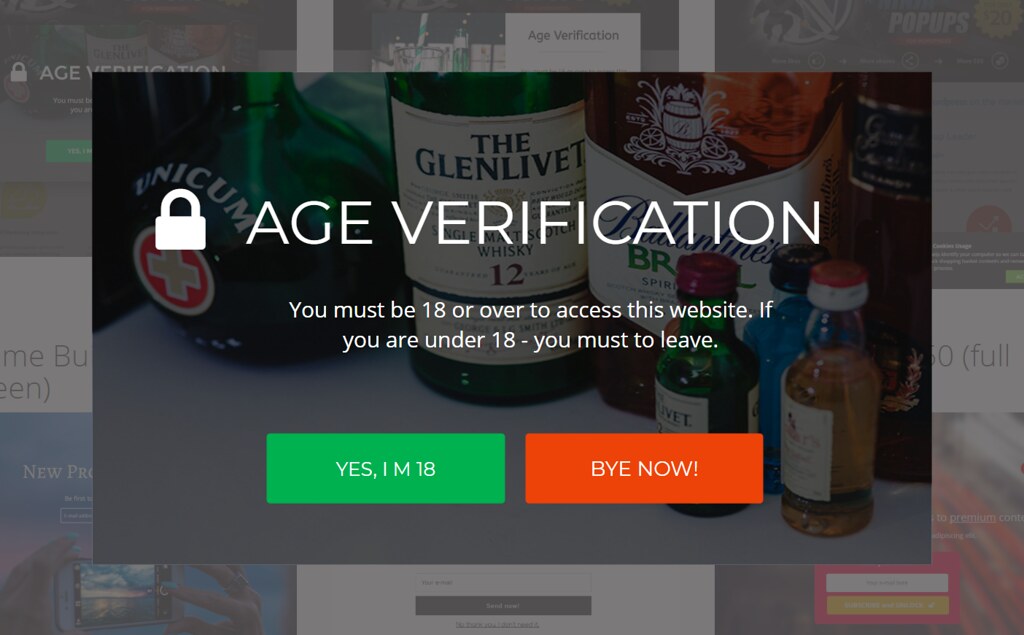Due to the technological changes, the use of the internet has increased rapidly, which has raised several concerns associated with child protection for businesses and parents. As the modern world is constantly evolving and technology base smart gadgets are readily available they are becoming the primary source of minor exploitation.
Most of the online businesses do not comply with the age verification laws due to which selling drugs/alcohol and various other age-restricted products have become easier. However, the regulatory bodies have established laws and standards for digital businesses, intended to provide age-oriented services. Its regulatory obligation is to incorporate customer identity verification along with age checks. Merely, the old-fashioned way of verifying the date of birth over digital platforms is no longer reliable.
Online Age Verification Solution- Manual vs Automated
Digital age verification is a method of protecting minors from accessing online content and facilities that are not suitable for their age. It’s the social responsibility of businesses to sell age-restricted products to customers who are actually above the legal age. It is mandatory for digital businesses to verify their users’ age, and age authentication systems are providing a perfect solution. Due to this, the online space becomes secure and children can easily maneuver over the internet to do activities legally.
Age validating solutions are not only beneficial to deliver the service to the right audience but also helps out businesses from getting victims of fraudulent activities. This also stops the children from carrying out transactions which eventually results in chargeback from their parents. The presence of an age verification system increases the platform’s credibility as it effectively prevents child exploitation.
Since adult-oriented services are readily available over the internet, age verification solutions are becoming viable for such digital platforms. Moreover, stores selling drugs and alcohol do not allow the children to even enter as it’s illegal for minors to get access to such products. The physical presence of the customers makes it quite easy to verify their age due to which there is less risk of child exploitation.
But on the other hand, verifying the user age becomes quite challenging over the online gateways due to a lack of transparency. The children’s protection regulations are the same for the digital platforms as the physical stores do. It gets more alarming when online businesses only require the date of birth for age verification. Hence, there is a significant need of securing these platforms with the utmost security in order to protect children from getting into bad hands. On the broader side, technology-driven age verification and KYCC solutions are viable that allows businesses to verify their customers’ age before granting them access.
How does Age Verification Work?
Submit Personal Information
The online customer has to provide the necessary identity information such as date of birth, name, etc.
Upload ID Documents
In the second step, the user has to upload scanned images or photos of government-issued identity documents such as ID cards, passports, etc.
Information Extraction
Using OCR technology, age verification software extracts essential information like date of birth from the identity documents to validate the provided data.
Verification and Generating Results
Once the verification process is completed the customer is authenticated or flagged on the basis of age verification checks. The modern age validation process is powered by AI and is supervised by human experts. Such systems also assist digital businesses to incorporate with the global age verification regulation like GDPR, COPPA, etc.
Industrial Use Case of Age Verification
Pharmaceuticals
Digital pharmacies tend to provide remote services to patients, yet exploited by the underage customer in the shape of drug addiction. Due to this, the regulatory bodies have taken some of the pharmacies under their command to manage customers’ records. Yet, this is not enough to determine the exact age of the online customers. Therefore, it’s quite important for digital pharmacies to be of utmost sure that their consumers’ are of legal age to buy age-oriented medicine and drugs. Digital age verification checks are a helping hand for pharmaceutical businesses to become trustworthy as well as to prevent children from falling prey to drug addiction.
Digital Gaming
Youngsters and children are addicted to digital gaming. However, these games are pouring negative effects on their health, and due to the presence of criminals over such platforms, they are most likely to become pawns of the bad actors. Additionally, age-oriented games are also circulating over the internet which is illegal by law to access if you are below 18. The gaming platforms lack modern verification solutions. Due to which children are indulging in suspicious activities. Therefore, online gaming platforms are obliged to comply with age verification services to prevent child exploitation.
Final Thoughts
It’s quite obvious from the above discussion that access to digital services and goods can’t be controlled or restricted by the parents. It’s the duty of digital businesses to regulate their service in accordance with global laws and regulations. No doubt it’s challenging and in some cases problematic to verify the age of digital consumers but with the presence of automated age verification solutions, it has become a piece of cake. It’s a perfect way of protecting children from exploitation.
Lucas Noah, armed with a Bachelor’s degree in Information & Technology, stands as a prominent figure in the realm of tech journalism. Currently holding the position of Senior Admin, Lucas contributes his expertise to two esteemed companies: OceanaExpress LLC and CreativeOutrank LLC. His... Read more
